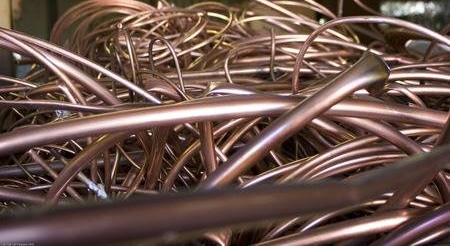In the world of recycling and sustainable practices, the concept of “Cash for Copper” has gained significant traction. Beyond its monetary incentive, this practice plays a crucial role in both environmental conservation and the responsible use of resources. In this article, we’ll explore the dynamics of cash for copper, from its significance to the process and the broader impact on our environment.
I. Understanding the Value of Copper
A. The Inherent Worth of Copper
Copper is a versatile metal with unique properties, making it a valuable commodity in various industries. Its conductivity, malleability, and corrosion resistance contribute to its widespread use in electrical wiring, plumbing, and industrial machinery.
B. The Economic Perspective
As a tradable commodity, copper holds economic value, and its market price fluctuates based on global demand and supply. The recycling industry taps into this economic aspect, offering cash incentives for individuals to contribute to the recycling loop.
II. The Cash for Copper Process
A. Collection of Scrap Copper
Individuals and businesses can participate in cash-for-copper programs by collecting scrap copper. This can include old wiring, plumbing fixtures, electronic components, and other items containing copper.
B. Weighing and Valuation
Upon collection, the scrap copper is weighed, and its value is determined based on the current market price. The condition and purity of the copper also influence its worth.
C. Transaction and Payment
After valuation, individuals can sell their scrap copper to recycling centers or scrap yards. The transaction is typically straightforward, with payment made in cash or through alternative methods.
III. Environmental Impact of Cash for Copper
A. Reduction of Mining Pressure
Copper is primarily obtained through mining, a process that can have detrimental environmental effects. By recycling copper, the demand for new mining diminishes, reducing the ecological footprint associated with mining activities.
B. Energy Conservation
The recycling process consumes significantly less energy than the extraction of raw copper from mines. Cash for copper initiatives contribute to energy conservation and a more sustainable approach to resource utilization.
IV. Promoting Sustainable Practices
A. Encouraging Recycling Habits
Cash for copper programs not only incentivize individuals to recycle but also contribute to a broader culture of sustainability. This encourages people to view waste not just as garbage but as potential resources.
B. Creating Economic Opportunities
The cash for copper system creates economic opportunities for individuals and businesses engaged in the collection and recycling of copper. This decentralized approach fosters a sense of community involvement in environmental conservation.
V. Challenges and Considerations
A. Theft and Illicit Practices
The lucrative nature of copper has led to instances of theft, including the illegal stripping of copper from infrastructure. Proper regulation and ethical recycling practices are crucial to address these challenges.
B. Safety Measures
Collecting and handling scrap copper require adherence to safety measures. This includes awareness of potential hazards, proper equipment, and compliance with local regulations.
You can also contact local scrap yards or metal recycling centers, as they may be able to provide you with the current market price for copper price per kg in your specific location. Keep in mind that prices can vary regionally and are influenced by factors such as demand, supply, and global economic conditions.
VI. Conclusion
In the pursuit of sustainability and responsible resource management, cash for copper programs emerge as a win-win solution. Individuals benefit financially, recycling centers thrive, and the environment enjoys relief from the pressures of excessive mining. As we collectively strive for a more sustainable future, embracing initiatives like cash for copper becomes a tangible and impactful contribution.
Frequently Asked Questions (FAQs)
- How much is scrap copper worth? The value of scrap copper fluctuates based on market conditions, purity, and weight. Recycling centers determine the worth at the time of transaction.
- Can I recycle copper items at home? Yes, individuals can collect and recycle copper items at home, including old wiring, plumbing, and electronics. Many recycling centers accept small quantities from individuals.
- What precautions should I take when collecting scrap copper? Safety is paramount when collecting scrap copper. Use appropriate protective gear, be aware of potential hazards, and follow local regulations to ensure a safe recycling process.
- Are there regulations on selling scrap copper? Different regions may have specific regulations on selling scrap copper. It’s essential to familiarize yourself with local laws and choose reputable recycling centers to ensure compliance.
- How does cash for copper contribute to sustainability? Cash for copper programs reduces the demand for new copper extraction, lowering the environmental impact of mining. Additionally, the recycling process consumes less energy compared to mining, contributing to overall sustainability.




